
Marty Anderies
Professor in the School of Human Evolution and Social Change and the School of Sustainability, as well as the Associate Director of the Center for Behavior, Institutions and the Environment at Arizona State University
More
Marty Anderies joined the ASU faculty in 2002. His research interests focus on developing an understanding of how ecological, behavioral, social, and institutional factors affect the robustness/vulnerability characteristics of social-ecological systems. His work combines qualitative insights from present-day, historical, and archaeological case studies of social-ecological systems with formal mathematical modeling and experiments with human subjects to study how individual decision-making processes interact with governance regimes to influence social and environmental outcomes. Other areas of interest include economic growth, demographics, and theoretical ecology.

Shauna BurnSilver
Associate Professor, School of Human Evolution and Social Change Convener, Governance and Decision-Making Theme Julie Ann Wrigley Global Futures Laboratory Senior Sustainability Scientist, Global Institute of Sustainability and Innovation Arizona State University
More
Dr. Shauna BurnSilver is an environmental anthropologist interested in how changes in the global climate and socio-economic dynamics are affecting relationships between people and the Arctic environments they depend on. At the core of her work is an examination of social processes, particularly the role of social relationships embedded in networks, which shape households, communities and diverse stakeholder responses to change, in turn affecting livelihoods, well-being and institutional frameworks. In other words, BurnSilver is interested in how social relationships of sharing, cooperation and collaboration matter to people. She poses theoretical questions from within Environmental Anthropology, but the majority of her work is interdisciplinary and collaborative, an approach that allows exploration of change dynamics at a range of scales – small and large – critical for addressing complex questions of persistence, vulnerability and resilience within social-ecological systems.
Dr. Shauna BurnSilver: I am an environmental anthropologist interested in how changes in the global climate and socio-economic dynamics are affecting relationships between people and the Arctic environments they depend on. At the core of my work is an examination of social processes, particularly the role of social relationships embedded in networks, which shape households, communities and diverse stakeholder responses to change, in turn affecting livelihoods, well-being and institutional frameworks. In other words, I’m interested in how social relationships of sharing, cooperation and collaboration matter to people. I ask theoretical questions from within Environmental Anthropology, but the majority of my work is interdisciplinary and collaborative, an approach that allows exploration of change dynamics at a range of scales – small and large – critical for addressing complex questions of persistence, vulnerability and resilience within social-ecological systems.

Tatiana Degai
Assistant Professor, Department of Anthropology, University of Victoria
More
I was born and raised in Kamchatka land, Russia on the traditional grounds and with Itelmen people. My life, work, and research are inspired by rich heritage, worldviews, and wisdom of my people and Indigenous communities whose traditional lands I had an honor to visit and live on. My formal education is in Anthropology (MA, University of Alaska Fairbanks) and American Indian Studies (PhD, University of Arizona). I am currently an assistant professor at the department of Anthropology, University of Victoria, British Columbia and an Affiliate Assistant Professor of the Arctic Indigenous Studies at the Arctic, Remote, and Cold Territories, Interdisciplinary Center (ARCTICenter), University of Northern Iowa. My research centers around Indigenous visions to sustainability, Indigenous languages, and Indigenous arts. I maintain strong connection with the Council of Itelmens of Kamchatka “Tkhsanom” working on language and culture revitalization, and community well-being.

Chuck Estabrook
Visiting scholar, Department of Geography at George Washington University
More
He has been a Program Director at the National Science Foundation between 2010 and 2019. Starting in 2014, he was in the Office of International Science and Engineering where he managed the Partnerships in International Research and Education (PIRE) program. Prior to that, he was in the Earth Sciences Division at NSF where he was a Program Director for EarthScope. From 2001 to 2010, Dr. Estabrook helped build the global seismic monitoring network of the Comprehensive Nuclear-Test-Ban Treaty Organization in Vienna, Austria. From 1992 to 1999, he was a Research Scientist at the Geoscience Research Center (GeoForschungsZentrum) in Potsdam, Germany. Dr. Estabrook’s research has been in the geosciences on the nature of the earthquake source and the Earth’s Upper Mantle. He received his PhD in 1992 in Seismology/Geophysics from Lamont-Doherty Earth Observatory of Columbia University.

Pavel Ya. Groisman
Vice president, Hydrology Science and Services Corporation
More
Vice president, Hydrology Science and Services Corporation
920 Rockhold Drive, Asheville, NC, 28804-2917
Ph./Fax +1 (828) 254-1225; E-mail: groismanp@bellsouth.net
NC State University Research Scholar at NOAA National Centers for Environmental Information, Veach-Baley Federal Building, 151 Patton Avenue, Asheville, NC, 28801-5001
Ph. +1 (828) 271-4347; E-mail: pasha.groisman@noaa.gov

Alexander (Sasha) Kholodov
Research Assistant Professor at Geophysical Institute, University of Alaska Fairbanks
More
Alexander Kholodov joined the UAF in 2007. His professional preparation includes receiving of degrees of BS (1996), MS (1997) and PhD (2001) in Geology at the Lomonosov Moscow State University. Alexander’s research focuses on the better understanding of the role of permafrost in the high latitude ecosystems and social domain. Over the last 25 years he conducts research across the Arctic and Subarctic in Siberia, North-Eastern Europe and Alaska which includes deep permafrost coring, monitoring of ground temperature and seasonal thawing, soil and ecological surveys on purpose of studies of dynamics of ground thermal regime and interaction between permafrost and ecosystems. Since 2016 Alexander leads and participates in several NSF funded projects aimed on study of influence of permafrost degradation on Alaskan rural communities. He publishes results of his work in Polar Geography, Ecosystems, Geophysical Research Letters, Environmental Research Letters, Journal of Geophysical Research.

Stanislav Ksenofontov
Postdoctoral scholar at the ARCTICenter, University of Northern Iowa
More
Dr. Stanislav (Stas) Ksenofontov is indigenous Sakha social scientist from the Republic of Sakha (Yakutia), NE Siberia, Russia. He earned his PhD from the University of Zurich (Switzerland) where he conducted his research on the vulnerability of social-ecological systems of Arctic Sakha to global change drivers, including but not limited to climate change, land use change as well as socio-political transformations. As a postdoctoral scholar he continues his research on the impacts of global change drivers on Arctic social-ecological systems, particularly urbanization effects on Indigenous identities, Russian megaprojects impacts on ecosystems and traditional practices, urban infrastructures. Besides, Dr. Ksenofontov’s research interests include Asian interests in the Arctic, sustainability of Indigenous communities, Indigenous knowledge. Dr. Ksenofontov is a project group leader of indigenous collaborations of the Association of Polar Early Career Scientists (APECS) and Fellowship Program Coordinator of the International Arctic Science Committee (IASC).

Vera Kuklina
Affiliate Professor, ARCTICenter, UNI
More
Dr. Vera Kuklina is an indigenous scholar born and raised in an Buryat village in Siberia. Her research interests include urbanization of indigenous people, traditional land use, socio-ecological systems, cultural geographies of infrastructure and remoteness. Dr. Kuklina leads research projects on Frozen Commons and Informal Roads funded by the National Science Foundation and co-leads project Building Socio-Ecological Resilience through Urban Green, Blue and White Space, supported by the Belmont Forum. Among the recent publications there are papers in Polar Science, Polar Record, Eurasian Geography and Economics, Resources, Polar Geography, Geoforum, and Sustainability. She serves as a Co-Chair in the Eurasian Specialty Group of the American Association of Geographers and a leader of the Arctic Infrastructure Theme of the Council of International Arctic Social Sciences Association.

Marlene Laruelle
Director and Research Professor at the Institute for European, Russian and Eurasian Studies (IERES), Elliott School of International Affairs, The George Washington University
More
Dr. Laruelle works on the notion of social sustainability of Russia’s Arctic cities by looking at their urban regimes, migration policies, the way local identities are built and negotiated, and how multiethnicity is managed. Her research is based on yearly fieldwork conducted in Russia’s main Arctic cities: Murmansk and the surrounding Kola Peninsula mining cities, Arkhangelsk, Severodvinsk, Naryan Mar, Vorkuta, Salekhard, Norilsk, Dudinka, Yakutsk, and Mirnyi. She has authored Russia’s Strategies in the Arctic and the Future of the Far North (M.E. Sharpe, 2013), edited New Mobilities and Social Changes in Russia’s Arctic Regions (Routledge, 2016), and has published in Polar Geography, Sibirica. The Journal of Siberian Studies, Arctic, The Polar Journal, Polar Record, Acta Borealia.
Director, Institute for European, Russian and Eurasian Studies (IERES)
Director, Illiberalism Studies Program
Director, Central Asia Program
Co-director, PONARS Eurasia
The George Washington University
1957 E St, NW, Suite 412, Washington DC 20052, USA
marlene-laruelle.com

Weiwei Mo
Associate Professor in the Department of Civil and Environmental Engineering at University of New Hampshire
More
Dr. Weiwei Mo got her BS degree from Shanghai Jiao Tong University in China (2008), and her MS (2011) and PhD (2012) degrees from University of South Florida. Before coming to UNH, she was a post-doctoral associate at Yale University. Dr. Mo’s expertise lies in sustainability and resiliency assessment, infrastructure system planning and management, and social-infrastructure-ecological systems modeling. She has led several National Science Foundation (NSF) funded projects, working on interdependent infrastructure systems management, spatial optimization of decentralized infrastructure systems considering user preferences, crowdsourced water quality monitoring, and drinking water emergency response and planning. She received an NSF CAREER award in 2021. She teaches undergraduate and graduate level classes, including environmental pollution and control, environmental sampling and analysis, systems analysis of the environment, and life cycle assessment.

Kelsey E. Nyland
Research scientist at the George Washington University
More
Dr. Nyland’s expertise is in GIS and remote sensing, climatic geomorphology, and human-environment interactions. Dr. Nyland has published a number of previous monitoring and mapping studies that examined permafrost in Alaska and Siberia, Arctic industrial development and pollution, and Inupiat and Yupik ice cellars. Dr. Nyland has also been an instructor on several international student field courses conducted in central Siberia and Alaska. For the Frozen Commons project, Dr. Nyland leads the inventorying of commons, studying natural drivers of change to identified commons, and educational outreach activities.

Andrey N. Petrov
Professor of Geography and ARCTICenter Director at the University of Northern Iowa
More
Dr. Petrov is an economic and social geographer who specializes in Arctic economy, sustainable development and post-Soviet society, with an emphasis on the social geography of the Indigenous Peoples and chaining Arctic social-ecological systems. His current research is focused on sustainable regional development, spatial organization, and restructuring of Arctic economies mid rapid environmental change. Dr. Petrov leads the Research Coordination Networks in Arctic Sustainability (Arctic-FROST) and Arctic Coastal Resilience (Arctic-COAST), as well as multiple research projects. He has extensively published on issues pertaining to socio-economic crisis, socio-ecological change, and demographic dynamics in the North. Dr. Petrov is the immediate Past President of the International Arctic Social Sciences Association (IASSA), Past Chair of the International Arctic Science Committee (IASC) Social and Human Working Group and a Past Chair of the Polar Geography Specialty Group of the American Association of Geographers (AAG). He currently sits on the International Arctic Science Committee and U.S. Polar Research Board.

Stanislav Podusenko
Architect, artist, designer, photographer, independent curator and researcher
More
Graduated Institute of Architecture and Design at Altai State Technical University (Barnaul, Russia), majoring in architecture.
Founder and participant of the KUKOLKI group (2007–2008), the SHCHI snow sculpture festival, the ephemeral OUT gallery (2020—), co-founder of the CLUSTER Virtual Laboratory of Contemporary Art (2018—). Participant of international exhibitions Memories: Dialogues of Memory (Kazakhstan, 2019), Urban ruins (Croatia, 2016), The Art of Being (Vyksa, 2020); co-curator of the exhibition TERRA: Kamchatka (2019). Curator and co-curator of the inclusive project MIXING (2017—) exhibitions and ArtScience+Social exhibition project SVOICHUZHIELISHNIE (2020—). Recent lectures and master-class include Lecture course Photography is more than flat image (Russia, 2019—), Master class Introduction to Imagetext: curatorial practices in the humanities together with Olga Zaslavskaya (IACC/NAKKA, Hungary) at the Baikal International School of Social Research – 2019 (Center for Independent Social Research – Irkutsk), International workshop Рreserving Past and Future through Travel: from Stone to Neuroweb, Cluster Meeting (Russia, 2019).
Currently working on an ArtScience project together with an international team of scholars and artists. The multiyear project aims at the development of Arts, Science, Local and Indeginous Knowledge methodology. Participated in discussion on Art and Geography Confluences: Perspectives on Collaboration and Future Imaginaries, at the American Association of Geographers (AAG) 2021.

Alexander I. Shiklomanov
Research Associate Professor in the Earth Systems Research Center at the University of New Hampshire
More
Dr. Shiklomanov received M.Sc. (1983) and PhD (1996) degrees from Russian Hydrometeorological State University, St. Petersburg. Since 1983 to 2000 Shiklomanov worked in the Arctic and Antarctic Research Institute (AARI), in Saint Petersburg as an engineer, research assistant, and research scientist. Dr. Shiklomanov joined the Water Systems Analysis Group in 1997 and currently serves as a Research Assistant Professor. The focuses of Alexander’s research are on cold-region and Eurasian hydroclimatology, hydrological and water management modeling and analysis. Research interests include: hydrological monitoring systems; water balance and streamflow routing models; human activity and its influence on hydrology; climate change and hydrological systems; effect of land cover and land use change on hydrology.
Dr. Alexander Shiklomanov has more than 35 peer-reviewed publications. He is a co-developer of several regional hydrographic databases and a reviewer of multiple national and international scientific journals. Dr. Shiklomanov has been a Principal Investigator for several research projects sponsored by NASA and NSF.

Nikolay Shiklomanov
Professor of Geography at The George Washington University
More
Prof. Shiklmanov has been actively involved in Arctic Research since 1994. His main area of interest is permafrost and its interactions with natural and human systems. His research includes long-term permafrost observations in the Circumpolar Arctic, Permafrost-related process studies, and the effect of permafrost on human activity and infrastructure. Over the last decade, Dr. Shiklomanov has become increasingly interested in the socio-economic impacts of climate change on the Arctic, specifically the Arctic urban system. Since the early 1990s, Dr. Shiklomanov has actively participated in fieldwork in the Alaskan and Russian Arctic. As an educator, he teaches courses in Physical Geography, Climatology, and Arctic Environments at GWU.
Prof. Shiklmanov has received his BS in Physics from St Petersburg (Leningrad) University, Russia (1991), MA in Geography (1997) from SUNY Albany, and Ph.D. in Climatology (2001) from the University of Delaware. After holding multiple research positions at the University of Delaware, he has joined the Department of Geography at the GWU as a faculty in 2009.

James Temte
Graphic Designer, Muralist, Painter
More
Growing up in the least populated state of Wyoming, I have always been fond of wild landscapes and the human connection to the land and place. I am a member of the Northern Cheyenne Tribe and have joined Alaska Pacific University in 2018 and am currently serving as the Acting Director of APU’s Office of Research and Community Engagement. In addition, I also serve as adjunct faculty in the Institute of Culture and the Environment.
Over the course of my career, I have spent time with Tribes in all regions of the US and most recently Alaska. My interest in the Arctic is with the people of the Arctic and their interactions with the natural world.
I have a passion for supporting Indigenous voices, Tribal sovereignty, Tribal self-determination, and co-production of knowledge, including Indigenous methodologies and Western Science using innovative community engagement methods that include mural art, traditional Indigenous culture, science, and media.

Jon Waterhouse
More
Jon Waterhouse worked to empower Indigenous communities while facilitating a global understanding of water and planetary health, environmental stewardship, and climate change, as viewed through the Indigenous lens. From 2004- 2014 Waterhouse, as the Executive Director of the Yukon River Inter-Tribal Watershed Council facilitated an ambitious hazardous waste cleanup effort in the 330,000 sq. mile Yukon Watershed, simultaneously creating an Indigenous led water-quality monitoring network across the region that is recognized as one of the largest Indigenous efforts of its type in the world.
Alongside his partner, Photojournalist/Author Mary Marshall, they co-founded the Living
Indigenous Network of Knowledge (LINK), a global Indigenous led cultural and environmental network that combines Indigenous and contemporary science currently in Russia, Canada, and the United States with plans to expand to other regions.
Jon was U.S. Navy Chief Petty Officer, Indigenous Leaders Council Member,
NASA American Indian – Alaska Native Advisory Team Member, appointed to the IUCN World Commission on Protected Areas. President Obama appointed Waterhouse in 2010 through 2015 to the Joint Public Advisory Committee to advise on the environment of the North American continent.

Olga Zaslavskaya
Independent researcher and curator
More
Olga Zaslavskaya holds a Ph.D. in cultural studies from St. Petersburg State University. She is a co-founder and director of the International Alternative Culture Center (IACC/NAKKA) in Budapest (Hungary). During her years at the Central European University (1996-2015), she led several research-based cultural projects including, for example, a three-year research and education program “Alternative Culture Beyond Borders: The Past and Present of the Arts and Media in the Context of Globalization”.She is a co-founder of the international platform Virtual Laboratory of Contemporary Art Cluster (2017-). Her research interests include theory and practices of transnational cultural history, alternative culture, transnational biographical studies, and cultural geography. She is currently involved in the development of Arts, Science, Local and Indigional Knowledge programs focused on promoting collaborative research-driven creative projects in cooperation with natural, social, and humanities scholars and representatives of Indigenous people of the Arctic.
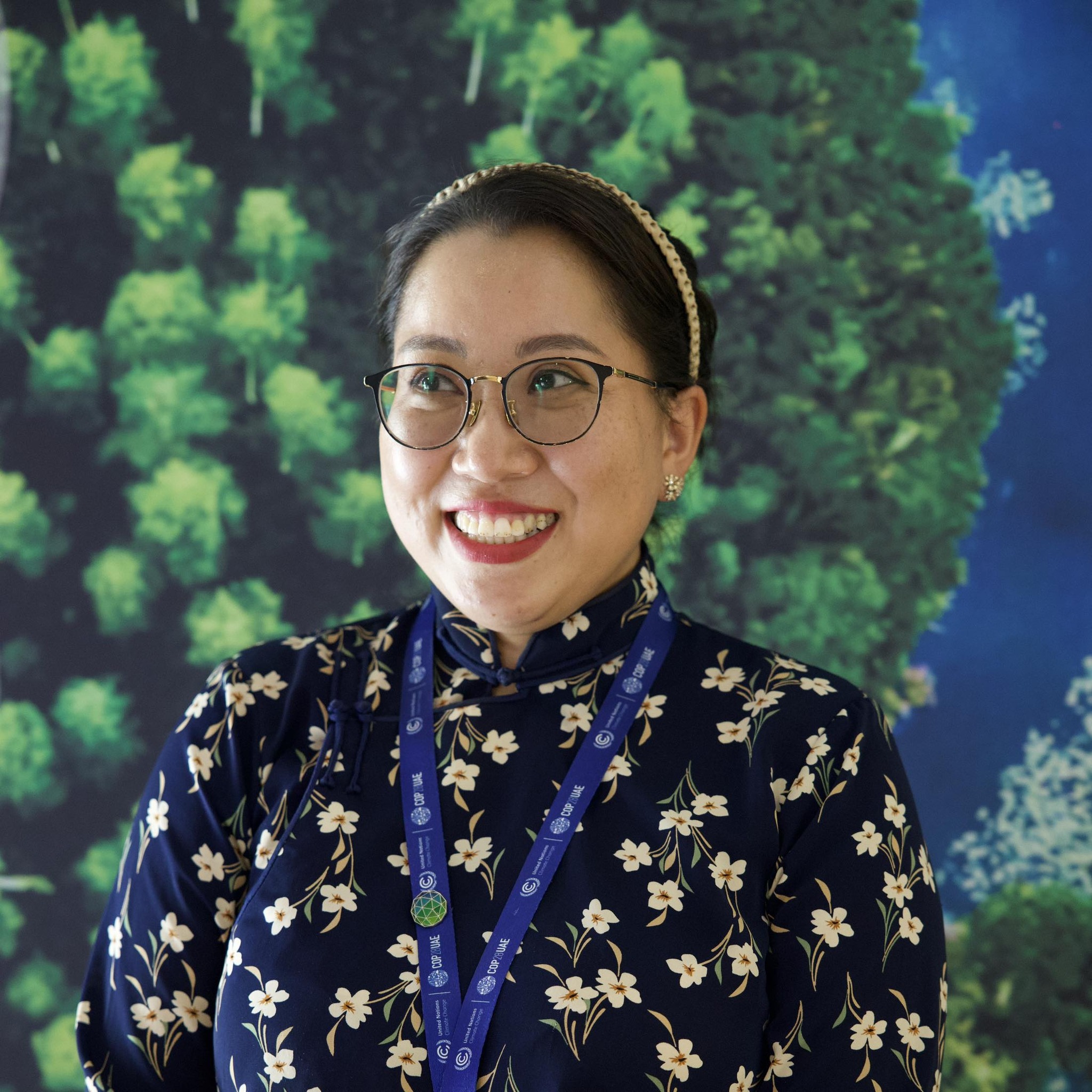
Uyemaa Gantulga
Graduate Research Assistant at the George Washington University
More
Uyemaa or Emma is trained Mechanical Engineer with decade of experience working in the renewable energy system design, operation, project development. Interested in working in sustainability, power sector and climate change data analysis, research and collaboration. In her free time, she works on creating analog astronaut space suit.
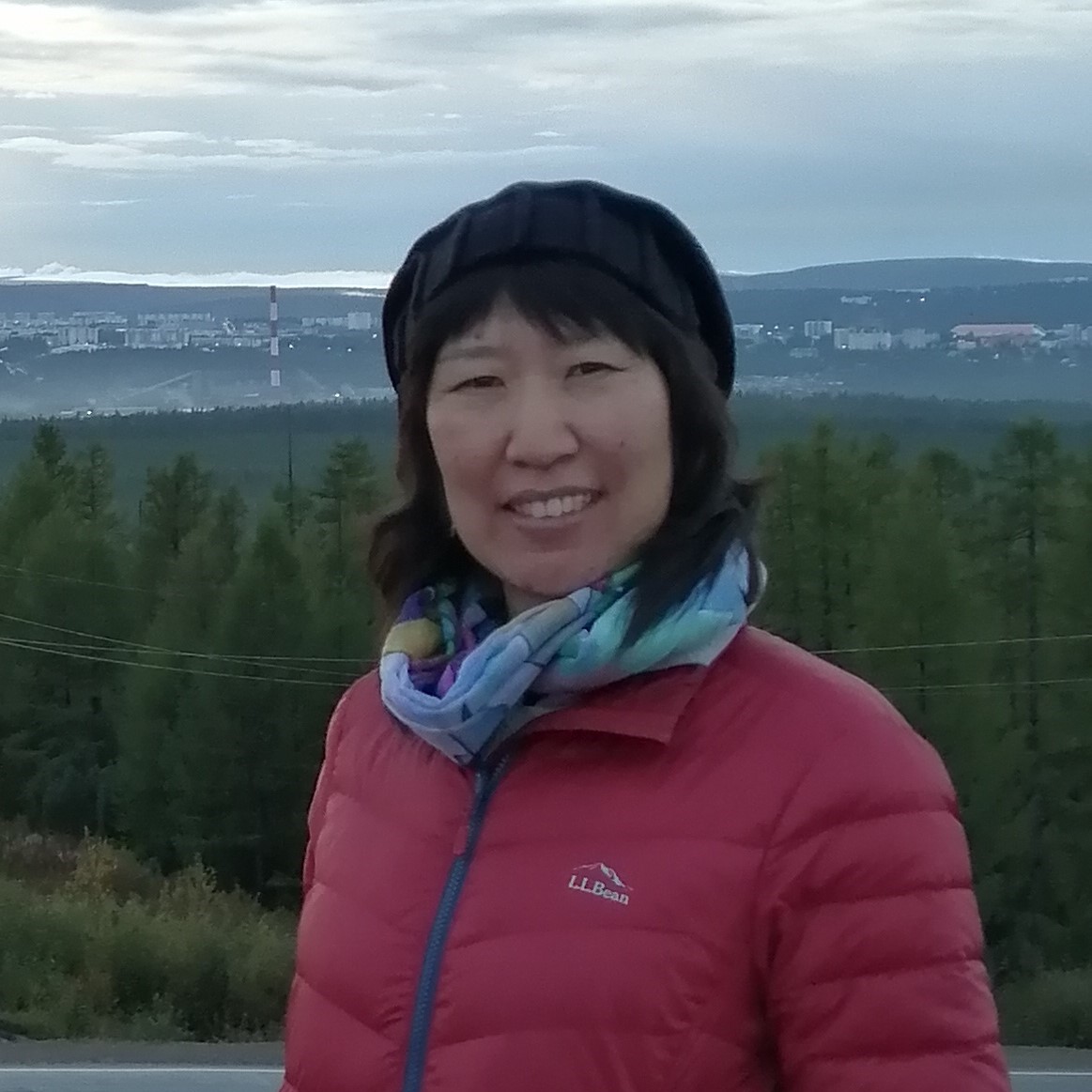
Mariia Kuklina
Post-doctoral Scholar at the Arctic, Remote and Cold Territories
Interdisciplinary Center (ARCTICenter) University of Northern Iowa
More
She studies emergingIndigenous knowledge-sharing networks in remote
Indigenous communities . Over the past three years, Mariia has participated in
expeditions to remote areas of Tyva, Buryatia, Khovsgol aimag of Mongolia,
Yakutia, Magadan, Amur regions, Alaska.
Her research interests include regional economy, actor-network approach,
complex networks, tourism, remote areas, indigenous communities, and
sustainable development.
Maria has been developing the Buryat national sport shatar (one of the types of
chess) since 2019. In July 2023, Maria organized a large regional shatar
tournament in the Bayandaevsky district during the regional Sur-Kharban
celebration.
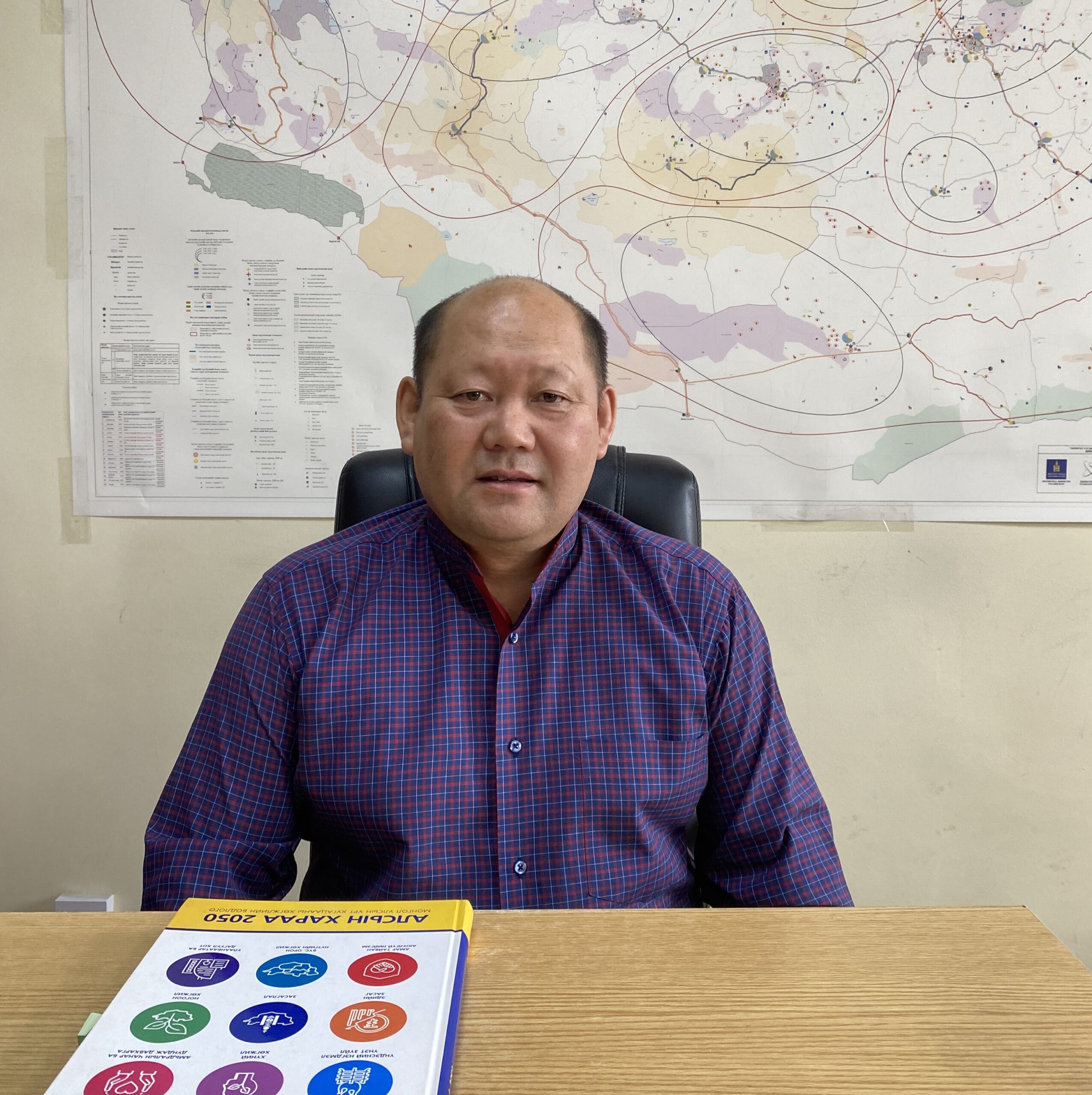
Enkh-Amgalan Sandag
Doctor of Philosophy
Researcher at Mongolian Academy of Sciences
More
Enkh-Amgalan Sandag: I work as a researcher at the
Institute of Geography and Geoecology of the Mongolian Academy of Sciences. Socio-
economic geography is my specialty. In the past 20 years, the livelihood of herders, I have
conducted research on traditional pastoralism, culture, nomadism, natural disasters
(drought and zud), and climate change and its impact and risks have been tried to be
studied separately for each natural zone and belt.Prof. Shiklmanov has received his BS in Physics from St Petersburg (Leningrad) University, Russia (1991), MA in Geography (1997) from SUNY Albany, and Ph.D. in Climatology (2001) from the University of Delaware. After holding multiple research positions at the University of Delaware, he has joined the Department of Geography at the GWU as a faculty in 2009.
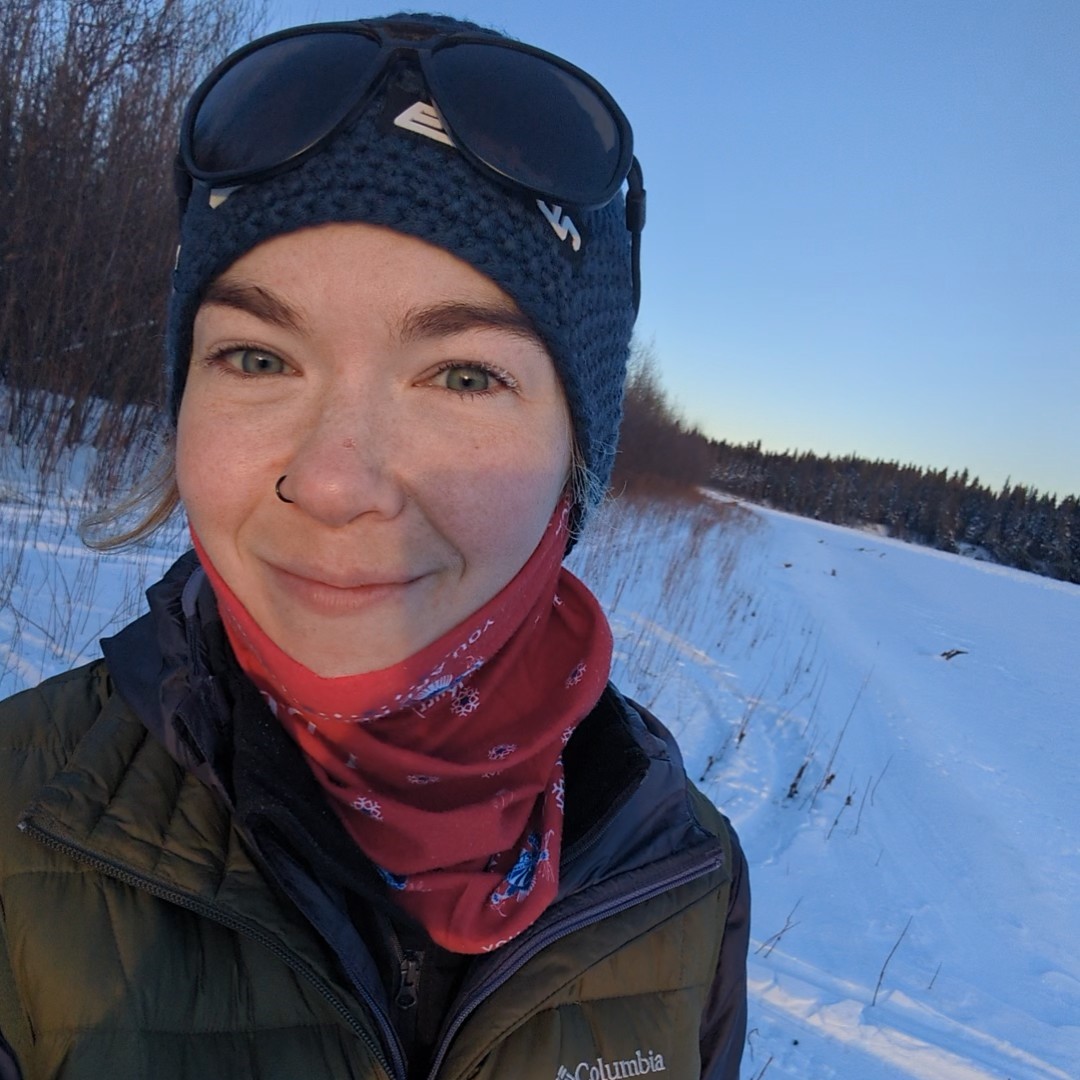
Leah J. Shaffer
PhD Candidate, School of Sustainability, Arizona State University
More
Leah Shaffer is a doctoral candidate at Arizona State University studying the role of worldviews
in governance and resource stewardship. As an environmental social scientist, she is focusing on
the emergence of conflict and consensus across groups working collectively to address climate
challenges. With an undergraduate background in quantitative analysis, Shaffer now seeks to
blend numerical data with the deep understanding that can be gained from interviews, stories,
and conversations. Whenever time allows, she loves to travel to cold places where she can cross
country ski, fat-tire bike, and explore snowy landscapes.
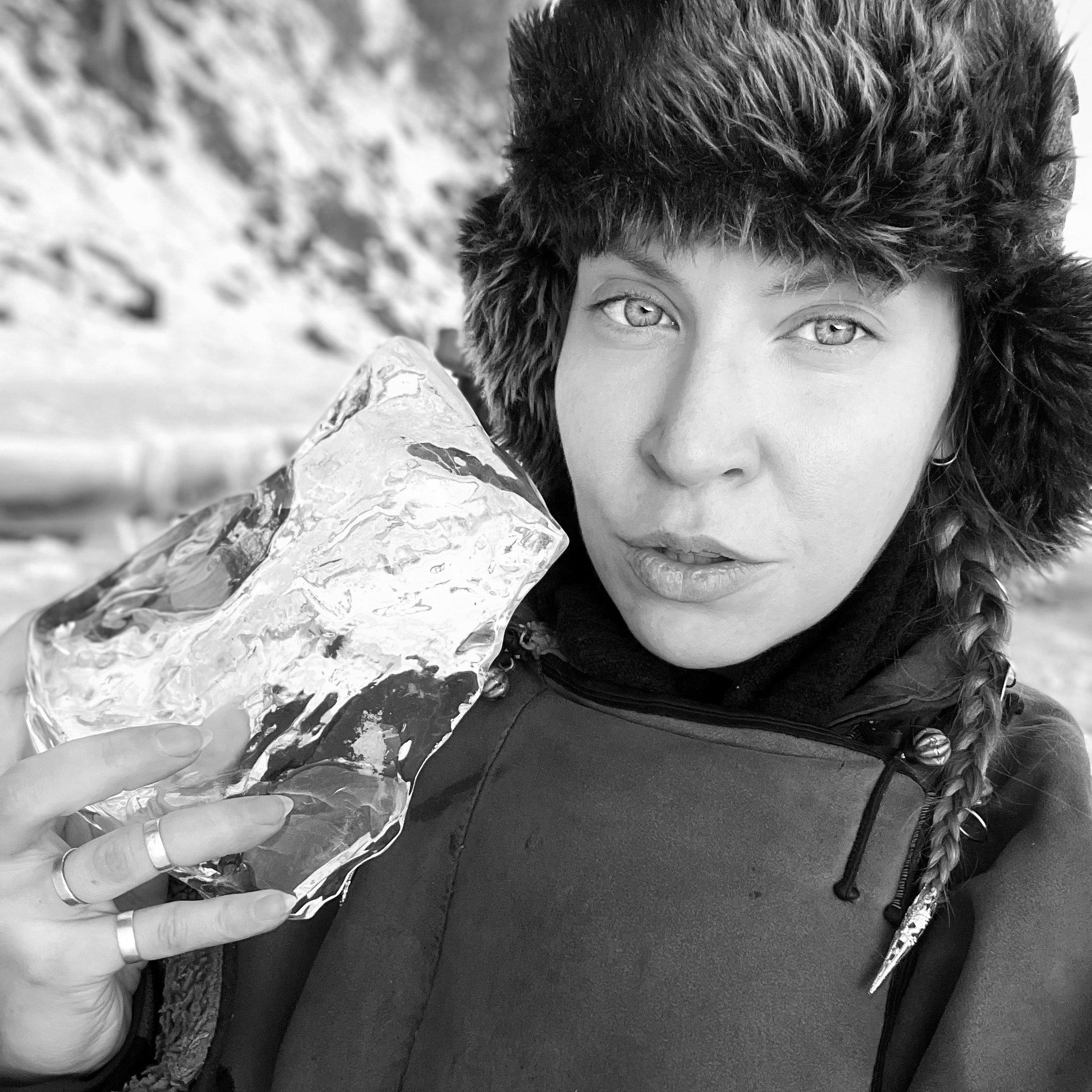
Olga Lo
Olga Lo is a traditional and digital artist
More
She creates artworks focused on the harmony of natural and artificial worlds, their beauty, and the importance of their balanced coexistence. She has participated in numerous solo and group exhibitions worldwide, including in Canada, Italy, France, Hungary, the UK, and Russia.
Each of Olga’s solo exhibitions has been dedicated to research projects she conducted using her favorite art medium—watercolor. Born in Saint Petersburg, Russia, Olga now lives and works in Budapest, Hungary. She received her MFA degree from the State Academy Institute of Painting, Sculpture, and Architecture.
She also explores the possibilities of artificial intelligence programs (DALL-E 3, MidJourney, ChatGPT) in connecting scientists with artistic methods to represent their research.
https://olgalo.com/
Instagram page: @artist_olga_lo
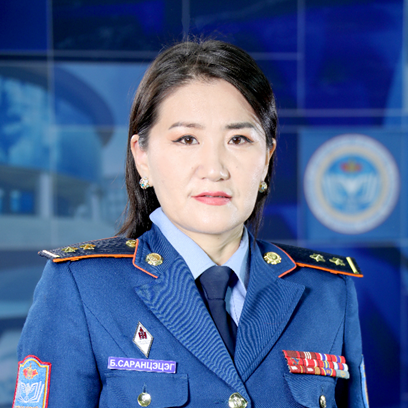
Dr. Sarantsetseg
Dr. Sarantsetseg is the head of the Research Institute of the University of Internal Affairs
More
She is also involved in educational activities and has taught at several international student field courses.
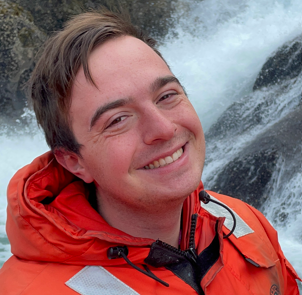
Vincent Pellegrino
Graduate Research Assistant and M.S. in Geography & Environment Student at the George Washington University.
More
Vincent Pellegrino is a Masters student in the Geography & Environment program at the George Washington University. He has experience working in the tourism industry and is particularly interested in arctic and sustainable tourism and the creation of people-centered cities and communities. In his free time, he enjoys hiking, swimming, horror movies, and theatre!
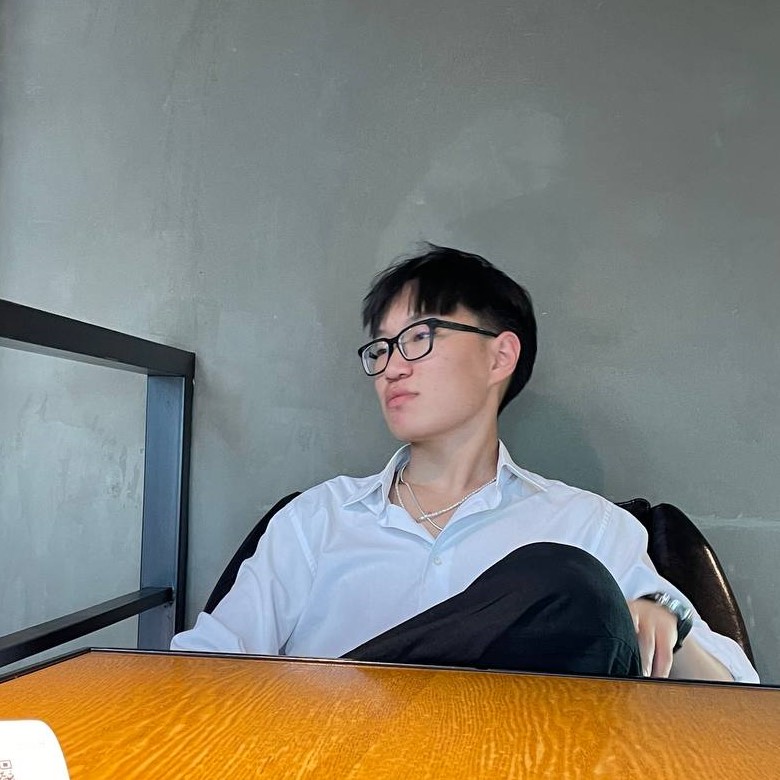
Denis Dabaev
Web developer and Undergraduate Student at the University of Northern Iowa
